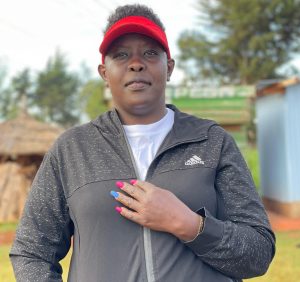Addressing the Challenges of Implementing CBC in Kenya’s Junior Secondary Schools: A Call to Action

Dr.Paul Wanjohi - Director, Sharp education centre and junior school, Kayole
By Dr. Paul Wanjohi, Education Expert and Founder of Sharp Education Centre
In the realm of education, every challenge presents an opportunity for growth and innovation. As we navigate the landscape of Kenya’s Junior Secondary Schools, it’s imperative to address the pressing issues hindering the effective implementation of the Competency-Based Curriculum (CBC).
At the heart of this endeavor lies the pivotal role of adequate resources and strategic planning.
The cornerstone of CBC is its competency-based approach, designed to cultivate holistic development and practical skills among students.
However, the reality on the ground reveals a stark disparity between the curriculum’s vision and the resources available in both public and private schools. Insufficient infrastructure poses a significant hurdle, impeding the seamless execution of CBC across all learning areas.
While teachers exhibit commendable creativity in adapting to these challenges, it’s evident that such ingenuity has its limitations.

The recent harmonization of learning areas, although a step towards streamlining the curriculum, introduces a fresh set of complexities. Teachers, who meticulously crafted their schematics, now find themselves compelled to realign their strategies—a process fraught with logistical and academic implications.
Moreover, the transition from 14 subjects to nine may seem straightforward in theory, yet its practical implications reverberate throughout the educational ecosystem.
Parents, already burdened by uncertainties, now face the prospect of additional demands as textbooks and resources undergo reassessment. Publishers, hesitant to proceed without clarity, further compound this dilemma, leaving stakeholders in a state of flux.
Amidst these challenges looms the crucial question of teacher preparedness. While our educators excel in pedagogy, specialization is paramount for navigating the intricacies of the revised learning areas.
Are we adequately equipped to ensure that every teacher possesses the requisite expertise to deliver the CBC curriculum effectively?
Furthermore, the logistical aspect cannot be overlooked. The anticipated influx of Grade 9 learners necessitates a comprehensive evaluation of infrastructure, particularly in public primary schools.
Without clarity on timelines and requirements, private institutions face uncertainty in their investment decisions, potentially exacerbating the divide between public and private education.
However, amidst these challenges, hope remains. Through meticulous planning and inclusive consultation, we can chart a course towards redemption for our junior schools.
It’s imperative that stakeholders collaborate closely, leveraging collective expertise to address existing gaps and forge a path forward.
In conclusion, while the road ahead may be fraught with obstacles, failure is not inevitable.
By embracing proactive measures and fostering a culture of collaboration, we can transform challenges into opportunities, ensuring that every child receives the quality education they deserve.
For inquiries and further engagement, please contact Dr. Paul Wanjohi at infosharpschool@gmail.com or call 0735314777.
Let us not merely aspire for change, but actively work towards its realization. After all, in education, as in life, proper planning is the cornerstone of success.






